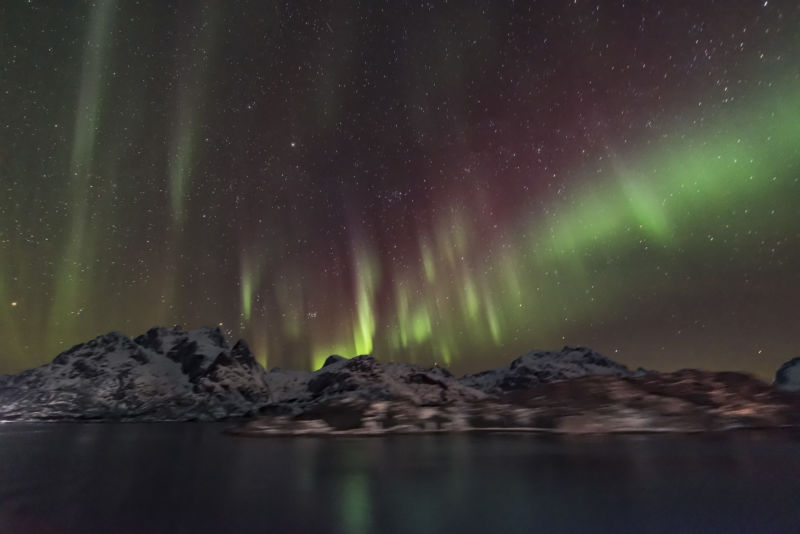Oil-wealthy Norway faces a political crossroads as climate concerns grow
Ars Technica » Scientific Method 2019-04-08

Enlarge / A faint but colourful aurora from the Lofoten Islands, Norway, on March 10, 2018. (credit: VW Pics/UIG via Getty Images)
On Saturday, the leader of Norway's Labor Party said the party would stop pushing for oil exploration in the country's ecologically-sensitive Lofoten Islands, according to Bloomberg. Norway is a major oil producer, pumping more than 1.6 million barrels of oil per day from its oil-rich offshore areas.
Permission to conduct exploration missions in the waters off the Arctic Lofoten Islands has been at the top of the wish list for Norway's powerful oil industry. The waters have been estimated to contain a reserve of one billion to three billion barrels of oil, and state-owned oil company Equinor has said that exploiting Lofoten is key to maintaining Norway's status as an oil powerhouse in the future.
Norway is particularly invested in oil. The country maintains one of the largest sovereign wealth funds in the world, built on the profits of the state's oil industry. The so-called Government Pension Fund has assets worth more than $1 trillion.